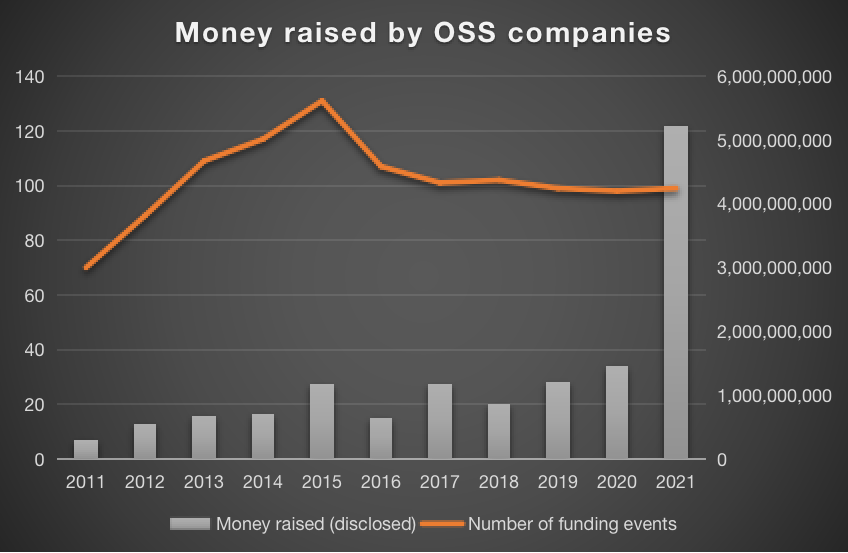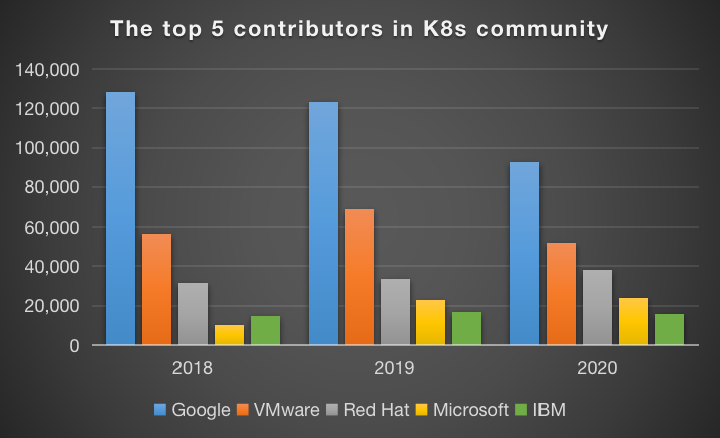Open source is hot
The investment in open source software (OSS) is the hottest in the past decade. Although the number of fundraising events didn’t increase, the money raised has more than tripled in 2021.

Notes:
- Data collected from Crunchbase with ‘open source’ as the organization industries.
- Not all companies disclosed the money raised in the fundraising events.
- The data for 2021 is between Jan. 1st to Dec. 21st.
Besides the money raised, there have been more unicorn companies and well-known IPO events in the OSS world in 2021. Overall, these are positive signals to the so-called OSS industry. More investment and success stories could improve the sustainability of OSS projects. It inspires more people to join the open source world as contributors or startup founders.
But more money and more attention also bring new issues to the OSS world. Since the potential valuation of OSS projects goes high, taking the leadership of good OSS projects is a profitable action. In some cases, there is intense competition on the contributions to OSS projects, for example, Kubernetes.

This is still a benign competition. But we could also find some tricky cases about how the OSS project owners try to control the community contributors.
The “exclusion” in OSS contribution
The below statements are extracted from the SEC Form S-1 when a particular open source company submitted the IPO registration materials.

Why did I mask the company name?
I am not going to criticize any particular company in this article. Because what they do is to follow the “industrial standard practice” at this moment. We should discuss if the “industrial standard practice” is reasonable rather than the right or wrong of some companies.
The exclusive license they mentioned here is upsetting. When contributing to an open source project, people’s mindset would be open, share, give back, etc. Exclusive is never part of those senses of morals. How come a company is exclusively controlling my work?
The magic behind it is how the company makes up the contributing process.
Before making any contributions, people need to sign a contributor license agreement (CLA). This is copied from Apache Software Foundation (ASF) practice. However, the company usually removes the below commitment from the ASF CLA document.
In return, the Foundation shall not use Your Contributions in a way that is contrary to the public benefit or inconsistent with its nonprofit status and bylaws in effect at the time of the Contribution.
So their CLA is not bi-direction. It’s just the contributors are making a commitment, delegation to the company. You should be aware that you are signing the CLA with the company, not the OSS community. The company is the initiator of the OSS community, but is it the community?
Since the contributors only sign the CLA with the company in the process. So the company could claim it has the exclusive license to make money from the community contributions.
Is it what the community expects?
